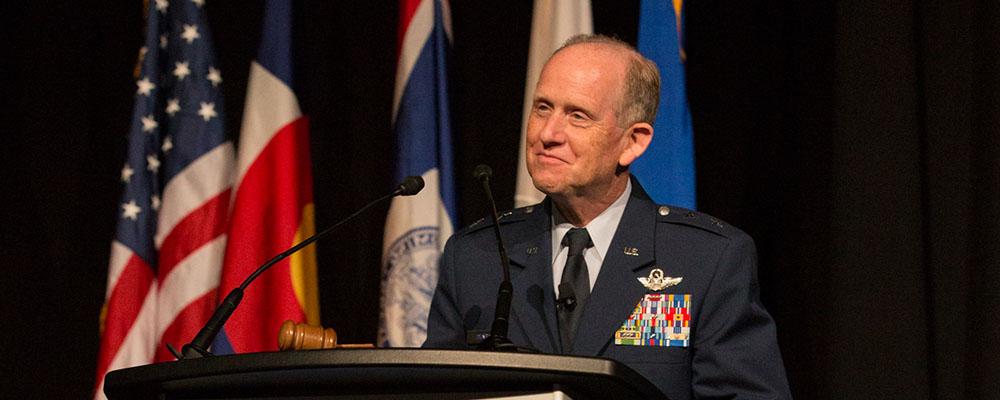
As NGAUS chairman and an adjutant general, I often have the privilege of meeting business leaders and elected officials.
They frequently ask me about the National Guard and I have an elevator speech at the ready in which I refer to the minuteman, the enduring symbol of the National Guard. I explain that on a bad night in America or anywhere in the world where America is needed, you can count on the Guard to drop our ploughs and pick up our muskets.
It satisfies as a short explanation, but it hardly tells the full story. Truth is, few outside our ranks really understand the demands we face to respond to a call from a governor or the president. It takes rigorous and exacting training, but even that is only one of the requirements.
“Serving in the National Guard can be difficult. Yet, hundreds of thousands of patriots answer the call again and again."
Most Guardsmen also have civilian careers and raise families. Both come with responsibilities that, much like those in the military, increase over time. Add a high operations tempo with no end in sight and today’s Guardsman has to be a juggler to balance all these competing demands.
This is what makes serving in the National Guard so difficult. Yet, hundreds of thousands of patriots answer the call again and again, living lives as citizens first, but with a passion for service to state and nation.
And it is this commitment to service that makes the National Guard a treasure. These men and women, who are proud members of the U.S. Army and U.S. Air Force, are 100% American soldiers or American airmen. But they are more — they are members of the National Guard first and foremost. They are the only portion of our nation’s defense that stands ready to respond to both a governor’s order and/or a federal mobilization order by the president.
This is uniquely American. When our nation ratified the Constitution in 1789, it did not do so to give us rights as Americans. Rather, the people of the newly formed United States created a government to protect the rights that God had given to the people.
These rights are in the Declaration of Independence and codified in the Constitution. The framers knew they had to be defended, and they relied on what is today the Guard to serve as the foundation of that defense and provided Congress with substantial authority to defend the nation with, again, what is today the Guard.
The framers insisted that states and citizens have a key role, and the Guard — which had been defending communities since 1636 and served a pivotal role in the Revolutionary War — was charged with executing the nation’s laws, putting down insurrections and repelling invasions. The states were given absolute authority to train their forces and appoint the officers, while Congress was given authority to call them forth as necessary. These authorities still exist.
The Guard was instrumental in securing this nation’s freedom. And it has played an enduring and valuable role in defending this nation and the Constitution ever since.
Every Guardsman swears an oath to the Constitution and his/her state’s (territory or the District of Columbia) constitution, and we have been successful.
A state military organization and a proud part of the U.S. Army and U.S. Air Force when mobilized, we continue to fulfill our role as the foundation of America’s defense. Throughout history, only a few republics have been created, and all of them have relied on the citizenry (militia, National Guard, citizen-soldier, citizen-airman) for their defense.
The National Guard is a proud part of the nation’s defense team, but we are constitutionally unique and, thanks to the soldiers and airmen who fill our ranks, we are an American Treasure.
